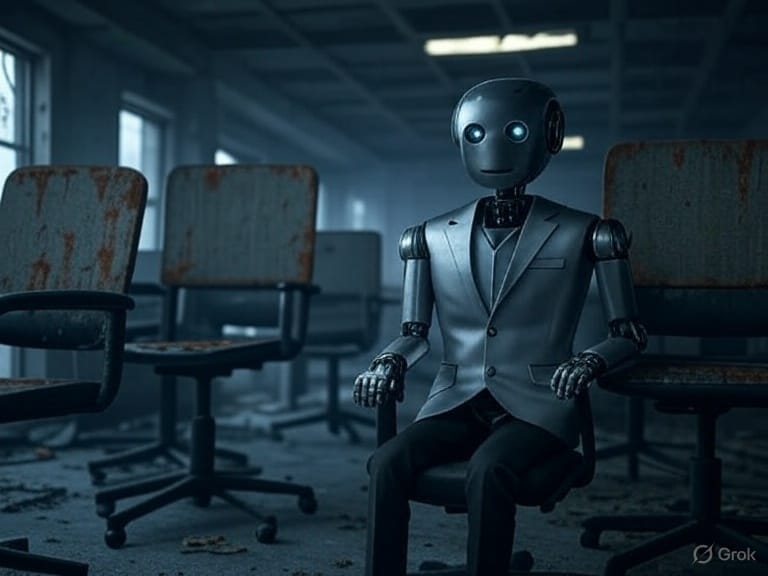- Shortlysts
- Posts
- New AI Layoffs Surge as Former Google Exec Warns: ‘No Job Is Safe, Not Even CEOs’
New AI Layoffs Surge as Former Google Exec Warns: ‘No Job Is Safe, Not Even CEOs’
Companies cut over 10,000 jobs last month due to AI, while a former Google exec warns a 'short-term dystopia' could wipe out even white-collar careers.

What Happened
Artificial intelligence isn’t just transforming the economy. It’s tearing through it. In July 2025 alone, U.S. companies cut over 10,000 jobs directly due to AI automation. This is according to new data from outplacement firm Challenger, Gray & Christmas.
AI is now ranked among the top five causes of job loss nationwide. The numbers don’t lie. AI is no longer theoretical. It’s replacing people, and fast.
And the warnings are getting louder. Mo Gawdat, former chief business officer at Google X, says the coming years will bring what he calls a "short-term dystopia," starting around 2027. According to Gawdat, AI systems are advancing so quickly that they’ll soon outperform humans in nearly every task. That includes executive leadership.
"If you’re not in the top 0.1%, there is no middle class," Gawdat said in a recent interview. He believes that automation won’t just cut factory and office jobs. He believes that increased implementation of AI will go on to reshape entire industries. It will also force society to confront a future where even CEOs may be obsolete.
Why It Matters
Most conversations around AI have focused heavily on convenience. These usually champion faster search, smarter assistants, and cheaper labor. But now we’re beginning to witness the downside. Real people are starting to lose jobs. And not just in manufacturing or customer service.
These layoffs are hitting more than the tech sector. This is the same industry that built the AI tools in the first place.
Companies aren’t waiting for some distant AI revolution. They’re deploying automation today. Decision-making, content generation, logistics, analysis. These are all tasks once handled by entire departments. Now, they are being handed off to algorithms.
That’s why Gawdat’s warning carries weight. As someone who helped shape AI development inside one of the world’s most powerful tech firms, he’s not just speculating. He’s describing the trajectory from someone who has spent time on the operational side of things.
While the idea that "no job is safe" used to be hyperbole, now it would appear to be economic forecasting.
How It Affects Readers
For everyone in the workforce, the game is changing beneath your feet.
Whether you’re a writer, a manager, a truck driver, or even a C-suite executive, AI is coming for parts of your job. That doesn’t mean instant unemployment. But it does mean you’ll need to adapt, and fast.
Learning how to work alongside AI, or oversee it, could become the most valuable skill of the next decade.
For business owners, the allure of lower costs through automation is real. But so are the risks of cutting too deep or too fast. As jobs begin to vanish, so does consumer spending. That’s a dangerous spiral for any economy.
As for policymakers, the challenge is immense. If AI wipes out the middle class, as Gawdat warns, it won’t just be an economic problem. It will be a societal crisis.
This moment isn’t just about tech. It’s about survival in a system where the smartest machine, not the most experienced human, gets the job.